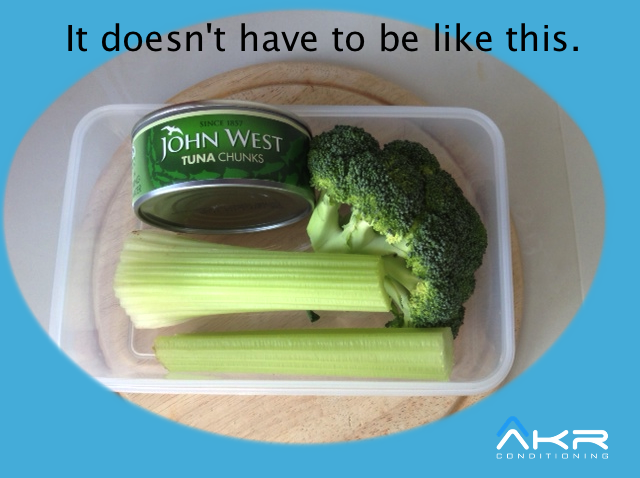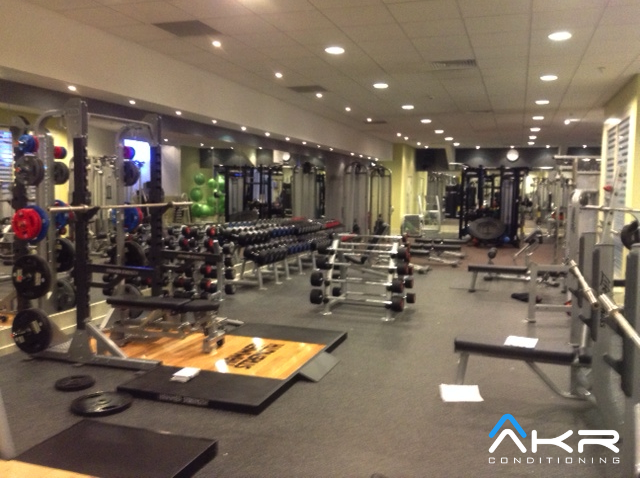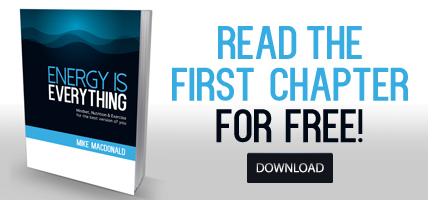What does it take? What does it really take to be healthy? To be happy? Or to be in the best shape of your life?
The message sold by the fitness and nutrition industry would have us believe that it takes unwavering grit! No pain, no gain! #BeastMode #FitnessMotivation
The self-proclaimed fitness freaks, gym rats and health gurus always seem so inspired. So dedicated. The gym 5 days a week. The food prepped in Tupperware boxes. The giant water bottle that never leaves their side. Such discipline. From the outside looking in, it’s no wonder your average person figures it’s easier just to not bother. …Or falls for some extreme approach that’s doomed from the outset.
Here’s the thing though: The majority of ‘fitspiration’ fitness rituals and practices are unnecessary and in some cases unhelpful. Indeed, most people would do better with a simpler approach over a longer period of time.
My life – and my results – got better when I let go of these 5 fitness clichés:
- Rigid eating habits
Yes, nutrition is important. Yes, we want to base the majority of our diet around minimally processed, nutrient dense, filling foods. No, you don’t need to be austere about it. You don’t need to avoid carbs. Or chocolate. Or butter or ice-cream. No food is going to make you gain weight all on it’s own. What matters is the overall context of your diet. There should be room for some moderation – especially if you’re physically active.
The more rigid you try to be, the more you’re likely to run into problems with binge eating, guilt, stress, and difficulties in social situations. Ironically, these are more harmful to your results than not eating ‘clean’ enough.
- Drinking gallons of water
I would agree that there are many people who could do with drinking a little more water throughout the day. But most fitness enthusiasts probably aren’t in this category.
Sure, have a drink if you’re thirsty, but if you’re constantly sipping away at that water bottle, and constantly visiting the bathroom, peeing clear, and still have a dry mouth, the chances are you’re probably drinking more than you need.
Just have a drink now and then. It’s not a big deal. And don’t forget that a diet abundant in fruit and vegetables also contributes to our fluid requirements.
- Machismo
“Go hard or go home”, they say. “Your workout is my warm-up!” “No days off!”
It’s not hard to find examples of machismo in the fitness industry. Whether it’s mud runs, military style ‘warrior’ workouts, or just good old-fashioned lifting, hardcore training is a popular trend at the moment.
Guess what? You’re not He-Man. You’re not in the Marines. You don’t need to beat yourself up. It’s ok to take a rest. And as I’ve found out plenty of times in the past, training through an injury is stupid.
If you enjoy it, great! But don’t act like being the toughest person in the weight room or exercise studio is somehow a badge of honour. And don’t fall into the trap of believing that’s what it takes – especially when doing some light stretching or merely going for a stroll might represent a step forward today.
- The missing link
I’m not immune to marketing. But I do now recognise that what sells and what works are not the same thing.
What sells is the idea of a special sauce: some sort of diet or supplement or superfood that you need to start eating. Sometimes the missing link is an elaborate workout or secret training technique that will ‘explode’ your results. Sometimes it’s a cure of some sort: something that will remove toxins, ‘supercharge’ your metabolism or fix your broken self in some way.
You’re not broken. And if there is a missing link it’s merely an ability to do the fundamentals consistently over a long period of time. To do that, you should make things simpler; not more complicated or extreme. …But that’s a hard message to sell …and even harder to profit from.
There are no secrets. Scientific research gets published and shared. It’s in the public domain. The majority of ‘ground-breaking’ ‘tricks’ or ‘hacks’ are most likely gimmicks at best. Focus on getting the basics right.
- Judgement
In my opinion, judgement is a big obstacle to health and fitness results. Specifically, I’m talking about judging foods, judging our body, and judging other people’s health habits.
Depending where you’re at, a cupcake might not be the most helpful choice, but if you can explain to me how eating one makes you ‘bad’, I’ll give you a cookie. …But I guess that’d be bad too. In my experience, becoming more neutral towards all foods is a big step for disordered eaters to get over their unnecessary restrictions.
You know what else isn’t ‘bad’? Being a little overweight. Seriously, it’s not a sin. What’s worse is judging people (including yourself) based on their body or their eating habits. The fitness industry is horrible at this. If someone doesn’t value their health as much as you do, that’s ok. Carrying a little extra body fat doesn’t make anyone a less worthy person. Nor does eating some junk food.
If you’re always judging foods and judging bodies, the chances are you’re judging yourself too. I’d bet that you’re already relatively lean or healthy but caught in that path of chasing perfection. Please know that that’s a journey with no destination.
If you want to improve, I love it! But let go of the judgements and accept yourself as you are. Otherwise you never will.
BIG IDEA: Despite marketing messages, most fitness rituals and practices are unnecessary, and often extreme and unhelpful.
TAKEAWAY: Most people would do better with a simpler approach over a longer period of time.
ACTION STEP: Before you consider any tricks, take time to examine your habits and question your beliefs. Are you really as consistent you think you are on the basics of sleep, nutrition and physical activity? Is doing ‘x’ really helping you?
Always Keep Reaching!
Mike







